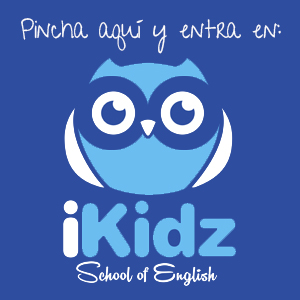Undoubtedly the importance of learning a second language has for all of us. There are many jobs that English proficiency by candidates is assumed and this is increasing. Therefore it is very important that our children and students increasingly have a greater mastery of the language which will mean differential value for the future.
When learning or acquisition should start a second language? What is the most appropriate age? How to do it? These are questions that many parents are made when choosing school or decide how to introduce their children in language learning.
In this post and next week's, We are going to see the most appropriate age and the reason for this age considering different points of view., from studies carried out by important universities and linguists, even what the European Union has to say about it, so that when you finish reading them you have a global vision to be able to make your own decisions based on objective data.
What does the European Union say about this issue??
To begin to lay some objective foundations, It is worth mentioning the study that the European Union commissioned in 2004, about published research works, good practices and the main pedagogical principles that support early language learning. The resulting report was published in 2007 and entitled “The main pedagogical principles underlying the teaching of languages to students at an early age”, This study affirms that starting language learning early can offer important advantages to students, given that activates the natural mechanisms that they have for language acquisition, at the same time that the learning period is extended in which they are offered a linguistic and intercultural experience, offering them a series of benefits that will be reflected in personal development, linguistic, acoustic, cultural, social and cognitive, of the students in addition to their self-esteem, perseverance and participation.
With the aim of supporting early language learning, the EU developed The action plan for language learning and linguistic diversity, which states that, I quote verbatim:
“The member states must guarantee effective language learning in nursery and primary schools, since it is in this period when the attitude towards other languages and other cultures is configured and the foundations are laid for future learning of other languages. […] Younger students thus become aware of their own cultural values and influences while appreciating other cultures., they become more open and interested in others. […] “Parents and educators should be better informed about the benefits of these types of activities at an early age.”
In addition to confirming that learning a language must be done at an early age, something that we probably all already suspected, The EU answers another of the questions we asked ourselves at the beginning of this post, how to do it? And establishes a series of appropriate practices for early learning of foreign languages:
1. Create meaningful contexts. Stories and tales provide an ideal environment for understanding, oral production and interaction. From my point of view, These contexts must be related to the life of the little one, so that they are familiar and easy to remember. Tell him stories that are familiar to him and to which he feels identified, It will make you remember better and later use some of the vocabulary that we have seen applied to your own environment.
2. Learning languages by imitation is very effective at an early age. That's why the songs, rhymes and games are so effective at these ages. Other types of imitation activities, like theater, They are also extremely effective.
3. It is important to develop models and practices, since they help structure what happens in the classroom. We have already spoken on previous occasions about the importance of creating routines in the lives of children., and the same thing happens with language learning.
4. Maximum language exposure. With maximum exposition it refers to the fact that not only the teacher should be the one who transmits the language to the student., further, we must use resources like bits, Vocabulary cards, songs, games or pages and resources like the ones we discuss in “The best websites to practice English with your child”. The important thing is that the child spends as much time as possible in contact with the language we are working on..
5. Parental involvement. It is essential that the objectives of teaching and learning foreign languages are clearly defined and that both parents and teachers are aware of them in order to work in parallel to achieve the proposed objectives..
6. Continuity and progression is important. I.e., There must be continuity between the different educational levels, so that all the previous effort and work is not in vain.
In today's post we have seen how the EU suggests that we must address the learning and teaching of a second language at an early age., But there are many authors who have talked about this topic..
Next week we will see in detail different studies that have addressed this topic and the opinion of some neuropsychologists regarding early language learning..
Kisses to all,
Everyone has their own way of learning.
Paulo Coelho
Tags: language learning, Learning English, Suitable age, Early ages, Languages



 Español
Español English
English Français
Français Deutsch
Deutsch 中文(简体)
中文(简体) Português
Português
